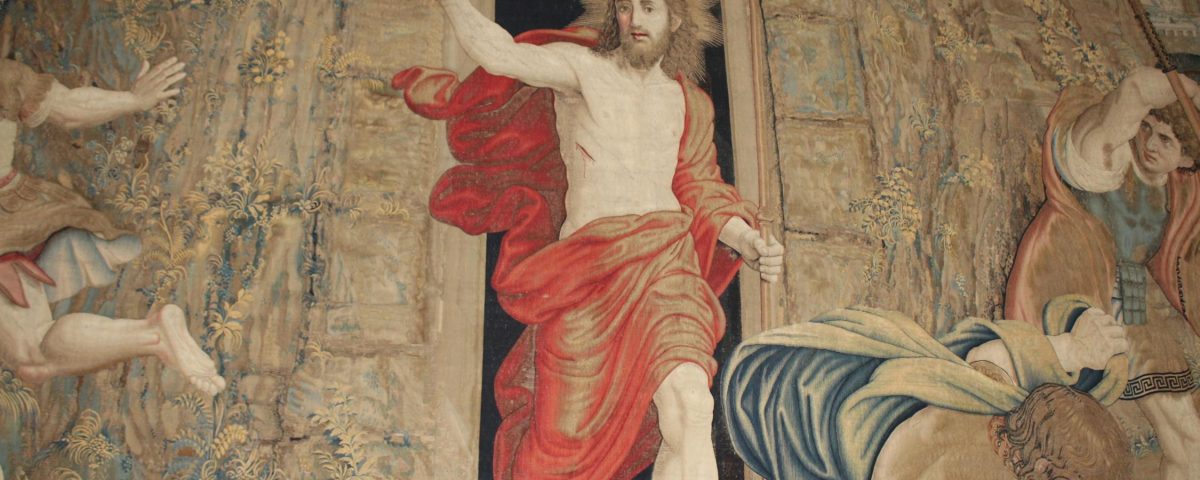Happy Easter, everyone! Welcome to us! I hope you got the seats you wanted!
Last night at the Great Vigil, we welcomed about thirty people into the Church—three baptisms, a lot of receptions and confirmations. It was glorious, and it never ceases to amaze me how the Lord calls so many people to him each year.
In the tradition, if you read the early fathers’ preaching from this time of year—from Easter and the days immediately following it—special care was always given to these new believers; the teaching and preaching and prayers were all designed to help these new Christians get off to a good start.
Saint Augustine’s homilies from this time of year are my favorite; his advice to new Christians, I think, is still worthwhile. And it was basically this; this is what he repeatedly told brand new believers: Stay away from bad Catholics! Again and again, that’s what he said: Stay away from bad Catholics. Hanging around pagans wasn’t great either, but hanging around bad Catholics was even worse. Choose the right ones to imitate, he told them.[1] Stay away from the false faithful.[2]
So, wondering what to say to you this morning, I guess it’s this: Don’t be bad Catholics.
Now, before you storm off, give the office a call tomorrow, or tweet about it, let me explain myself. I’m not talking like a culture warrior here. I’m not immediately talking about morality or politics—although I wish more people would make an honest and intelligent examination of the Christian moral vision, and I do wish more people (equally left and right) would see through the false promises of politicians and quit worshipping those walking, talking golden calfs.
No, what I’m talking about is hope; hope despite everything. That, before anything else, is what makes you a good Catholic. I think of that line from that Wendell Berry poem: “Be joyful though you have considered all the facts.”[3] That’s kind of what I mean.
You see, Easter began in darkness, near a tomb, in apparent hopelessness. But it began also with a love that simply refused to give up, refused to run away from darkness; it began with a love that waited for God there in the darkness, even when it seemed inconceivable God would show up, unwittingly waiting for resurrection. Easter began with tears in the darkness, but with a love that remained love.
That’s what I mean. That’s what I mean when I beg you to be good Catholics—to love like that, to hope like that. No matter how scary the world gets, how divided we are, I hope you can love like that and not get swept up in the noise and the hatred. I hope you don’t get played this year by grifters and politicians and celebrities; rather, I hope you love like Mary Madgalene. I hope you’re like her instead. She was a good Catholic.
People reacted to the resurrection of Jesus differently. It was a confusing event to say the least. John believed first; he was the Beloved Disciple. He knew because he loved. Mary Magdalene believed when she finally heard Jesus speak her name. Peter had to go home and think about it. The other women ran away scared to death. That’s just the way Easter goes. Some of you will react one way, others another way. Some will yawn and see little; some will see and believe. I can’t argue you into it; that’s the Spirit’s business. It is what it is. But hopefully some see it—some of you, even. And hopefully you’re hopeful because of it—like all good Catholics should be. Happy Easter. Amen.
[1] Augustine, Sermon 260D 2
[2] Augustine. Sermon 260
[3] Wendell Berry, “Manifesto: The Mad Farmer Liberation Front” (1973)
© 2024 Rev. Joshua J. Whitfield










